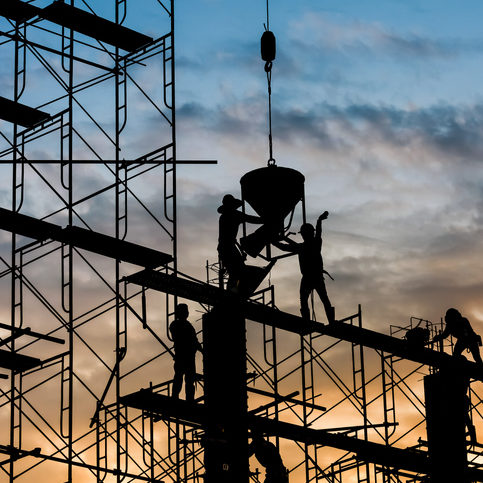
Construction Law Updates: Teeth Taken Out Of HB 87 Regarding Updates To Procedure For Filing A Chapter 558 Notice Of Construction Defect Claim
Overview | Blog Posts | Construction | William Linero Jr. | Related | Print | Share
April 28, 2015
Two bills were put before Florida’s House of Representatives this year that would have significantly affected litigation in Florida involving construction defects: House of Representatives Bill 87 (HB 87) relating to construction defect claims made under Chapter 558, Florida Statues, (which was passed on April 16, 2015); and House of Representatives Bill 501 (HB 501) relating to limitations of actions under Section 95.11(3)(c), Florida Statutes.
While HB 87 appeared that it would provide much needed clarity in how claims are specified, and would provide recourse against a claimant, and its attorneys, for baseless or frivolous claims, the meat of the proposed amendments to Chapter 558 has been gutted. What remains are minor changes that effectively fail to address the issues HB 87 originally set out to do.
Chapter 558 was originally created in 2003 to provide for an alternative method to resolve construction disputes that would reduce the need for litigation, as well as protect the rights of residential property owners. In 2006, Chapter 558 was expanded to apply to commercial construction. Under Chapter 558, before a claimant can file a lawsuit against a contractor, subcontractor, supplier, or design professional, the claimant must serve written notice and provide the party with an opportunity to resolve the alleged construction defect, pursuant to specific statutory requirements.
The following summarizes the latest changes to Chapter 558, as well as the departure from the original intent of HB 87:
- Section 558.001 has been amended to reinforce the fact that settlement negotiations conducted during the notice and cure process are confidential. It also recognizes the right of the insurer of an involved “contractor, subcontractor, supplier, or design professional” to be involved in the notice and cure process. This does not create any additional right of the insurer, but now specifically recognizes the right an interested insurer has to be involved in the process.
- The definition of the term “completion of a building or improvement” under Section 558.002(4) has been revised to include the issuance of a temporary certificate of occupancy. The notice and cure process requirements under Chapter 558 do not take effect until the building or improvement has been “completed.” Previously, completion of a building or improvement meant “issuance of a certificate of occupancy for the entire building or improvement, or the equivalent authorization to occupy or use the improvement, issued by the governmental body having jurisdiction . . . .” Under the new language, “completion” will occur upon the issuance of a certificate of occupancy, “whether temporary or otherwise, that allows for occupancy or use of the entire building or improvement . . . .” Consequently, under Section 558.005(1), unless a claimant and a potential defendant have agreed in writing to opt out of its requirements,
- Chapter 558 applies to any claim for legal relief for which the agreement to make the improvement was made after October 1, 2009, and for which the basis of the claim is a construction defect that has arisen after “completion of a building or improvement,” which now includes when a temporary certificate of occupancy is issued. Additionally, the definition of “completion of a building or improvement” are likewise amended in Section 718.203(3) and Section 719.2013(3) with regard to when the statutory warranty periods for cooperatives and condominiums commence.
- HB 87 initially amended the language of Section 558.004(1)(b) to require more detailed information to be contained in a notice of claim. The original bill added the following specific language to the section:
The notice of claim must sufficiently identify the specific location of each alleged construction defect to enable the responding parties to locate all of the alleged construction defects without undue burden. The notice of claim must also identify the specific provisions of the building code, project plans, project drawings, project specifications, or other documentation, information, or authority that serve as the basis of the claim for each alleged construction defect. Failure to include such information in the notice of claim is prima facie evidence of a defective notice of claim.
However, this required specificity was reduced significantly, eliminating the language above, and replacing it with the following:
Based upon at least a visual inspection by the claimant or its agents, the notice of claim must identify the location of each alleged construction defect sufficiently to enable the responding parties to locate the alleged defect without undue burden. The claimant has no obligation to perform destructive or other testing for purposes of this notice.
So now, a potential defendant can still be left to wonder what building code is alleged to be violated, and what is “sufficient” to “identify the specific location of each alleged construction defect to enable the responding parties to locate all of the alleged construction defects without undue burden” is left vague and open to debate.
- HB 87 initially amended Section 558.004(4) to provide for the express allowance for a written response to a claim to state whether the respondent is “willing to attempt to settle all or a portion of the claim through a monetary settlement offer and, if so, the amount of the monetary offer and a timetable for payment.” However, this has been eliminated. The bill also removed the requirement that a written response include “a statement of whether the contractor, subcontractor, supplier, or design professional is willing to make repairs to the property or whether such claim is disputed, a description of any repairs they are willing to make to remedy the alleged construction defect, and a timetable for the completion of such repairs . . .” and replaced it with the requirement that the written response “include one or more of the offers or statements specified in paragraphs (5)(a)-(e), as chosen by the responding contractor, subcontractor, supplier, or design professional, with all of the information required for that offer or statement.”
- HB 87 initially amended Section 558.004(8) to provide for an express remedy for monetary sanctions (attorney’s fees and costs) where a claimant has agreed to a settlement, but nevertheless proceeds to include the same settled defects in a subsequent lawsuit by adding the following language to the section:
If the claimant proceeds with an action that includes any claim previously resolved by the payment of money, by making repairs within the agreed time and in the agreed manner, or by a combination thereof in accordance with this chapter, the associated portion of such action shall be deemed frivolous, the associated portion of such action shall be stricken, and, upon motion filed by the person served with the action, the court shall award monetary sanctions against the claimant for costs incurred by the person served with the action relating to the claim, including attorney fees, in conjunction with defending against the frivolous claim.
However, this language was eliminated and is not part of the current bill. Now, there is no express provision for sanctions where a party settles its claim with a claimant, but the claimant proceeds to sue that party anyway for the same relief it already received.
- The documents that can be requested during the 558 investigation process under Section 558.004(15) are expanded to include “maintenance records and other documents related to the discovery, investigation, causation, and extent of the alleged defect identified in the notice of claim and any damages resulting therefrom.” A party is able to assert a claim of privilege with respect to any specified disclosure obligations.
- HB 87 initially added a subsection 558.004(16), which provided for an express provision for an award of attorney’s fees and costs against a party and/or its attorneys who file a lawsuit they knew or should have known was frivolous by adding the following language:
Upon motion filed by the person served with a notice of claim, the court shall award monetary sanctions for costs incurred by such person with respect to an alleged construction defect identified in the notice of claim that was solely the fault of the claimant or its agents, including costs of inspection, investigation, testing, related costs, and attorney fees, upon a finding by the court that the claimant or the claimant’s attorney knew or should have known that the claimed defect when initially presented was not supported by the material facts necessary to establish the claim in accordance with this chapter or would not be supported by the application of then-existing law to those material facts. However, monetary sanctions may not be awarded against the claimant’s attorney under this subsection if he or she acted in good faith, based on the representations of his or her client, as to the existence of those material facts.
However, this amendment was eliminated from the bill. Again, as with the proposed amendment to Section 558.004(8), teeth have been removed from the bill. While, theoretically, a defendant could seek similar sanctions under section 5707, Florida Statutes, that requires a separate process that must be followed.
- Section 558.004(13) is clarified by stating that the providing of a copy of the notice of claim to an insurance company does not constitute a claim for insurance purposes “unless the terms of the policy specify otherwise.”
The final version of HB 87 is located here, and is now before the Senate. The amendments would take effect October 1, 2015.
HB 501 would decrease the statute of repose provided in Section 95.11(3)(c) on actions founded on the design, planning, or construction of an improvement to real property from 10 to 7 years. Consequently, any such action would need to be commenced “within 7 years after the date of actual possession by the owner, the date of the issuance of a certificate of occupancy, the date of construction if not completed, or the date of completion or termination of the contract between the professional engineer, registered architect, or licensed contractor and his or her employer, whichever date is latest.” For the purpose of incorporating the amendment made to section 95.11, Section 627.441(2), Florida Statutes, would be also be reenacted to read:
A liability insurer must offer coverage at an appropriate additional premium for liability arising out of current or completed operations under an owner-controlled insurance program for any period beyond the period for which the program provides liability coverage, as specified in s. 255.0517(2)(b). The period of such coverage must be sufficient to protect against liability arising out of an action brought within the time limits provided in s. 95.11(3)(c).
Since originally being filed, HB 501 has been amended to provide that the statute of repose “applies to any action commenced on or after July 1, 2015, regardless of when the cause of action accrued.” Therefore, a party whose cause of action accrued prior to the changes in the bill, but who commences the action after July 1, 2015, could be barred from bringing the action by the shortening of the statute of repose from 10 years to 7 years. The revised bill provides that, in such circumstances, if the action would not have been barred under the 10-year statute of repose, the action may be commenced before July 1, 2016. If the action is not commenced by July 1, 2016 and is barred by shortening the statute of repose from 10 years to 7 years, then the action will be forever barred.
The current Committee Substitute HB 501 is located here. HB 501 is now before the final committee, the Judiciary Committee. If approved, the proposed amendments to 95.11(3)(c), Florida Statutes, would take effect July 1, 2015. Given the latent nature of many construction defects, this amendment could significantly reduce the amount of viable construction/design defect claims in Florida.
For any further questions, please contact William Linero.



